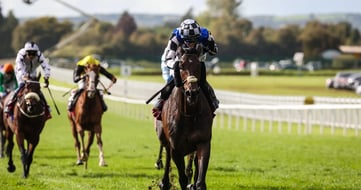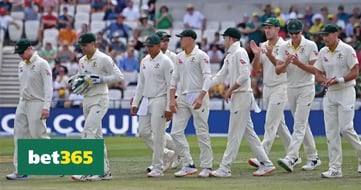Gambling Sites AU
Discover licensed and trusted online gambling operators in Australia.
- 18+. T&C Apply
- 18+, Registration Required, T&C's Apply. https://www.gamblinghelponline.org.au/ Disclaimer: Bet365 does not offer bonus codes in Australia and this referral code does not grant access to offers. What's gambling really costing you?
- 18+. T&C Apply
- 18+. T&C Apply
- 18+. T&C Apply
- 18+. T&C Apply
- 18+. T&C Apply
- 18+. T&C Apply
What is Gambling?
Gambling is the act of staking money on a game or event with an uncertain outcome.
Some forms rely entirely on chance, while others involve strategy or judgement. Either way, gambling carries risk and should be approached responsibly.
Online gambling is placing bets or playing games through a website or app. Because real money is involved, it’s important to choose licensed operators.
Best Gambling Sites in Australia
Below you’ll find the best UK gambling sites, based on our in-depth reviews and user ratings.
| AU Gambling Site | Best for |
|---|---|
| Unibet | Betting |
Explore our guides and comparison tools for top sites by gambling category:

Top AU Gambling Sites for Betting
Online betting operators should deliver competitive odds and live streaming, easy-to-use bet builders and frequent free bet offers.
Compare Betting Sites
What Makes an Australian Gambling Site Trustworthy?
Trustworthy gambling sites in Australia meet core standards for safety, fairness and transparency.
Australian Licence: Licensed and regulated by Australian state and territory authorities, with compliance requirements to protect customer funds and personal data, plus clear, accountable ownership.
Safer Gambling: Built-in spending controls and practical tools that help limit risky behaviour, plus systems to identify and assist vulnerable users.
Fairness & Integrity: Outcomes settled according to published rules, with complete activity logs and independent testing or audits.
Clear Terms & Offers: Key betting or event information explained in plain English, with simple conditions and transparent promotion requirements.
Secure Banking: Simple deposits and withdrawals, with trusted payment methods and fast payouts.
Customer Support: Live chat and email options, helpful responses and a clear complaints procedure.
Good Reputation: User reviews highlighting smooth payments and an overall positive experience.
Responsible Gambling
For most people, online gambling is an enjoyable and safe form of paid entertainment. For some, however, it can have negative or harmful consequences.
Overconfidence or a misunderstanding of probability can lead to impulsive decisions, such as betting more than planned or gambling until your ‘luck changes’.
Signs it may be a problem include chasing losses, getting into debt, being preoccupied with gambling or trying to cut back or stop without success.
In Australia, you must be aged 18 or over to gamble. All Australian gambling sites must have up-to-date policies and procedures to help prevent underage gambling.
Our Commitment to Safer Gambling
Your safety and wellbeing are our priority and we’re dedicated to promoting responsible gambling.
We only recommend Australian gambling sites that take customer protection seriously. As part of our review process, we assess their safer gambling tools, such as:
- Deposit limits
- Loss or wagering limits
- Time-outs and cooling-off periods
- Reality checks
- Self-assessment tests
- Self-exclusion options
Tips for Gambling Responsibly
Safer online gambling tools are most effective when you combine them with a few simple habits:
Stick to a budget: Only bet with money you can afford to lose and set it aside in advance, separate from your everyday finances.
Set a staking plan: Determine your typical stake and keep it consistent to avoid overspending.
Don't chase losses: Accept them as part of gambling and avoid raising stakes or placing extra bets to win them back.
Track your activity: Keep a record of the time and money you spend gambling online to stay aware and accountable.
Keep a clear head: Gambling when stressed, upset or under the influence can lead to impulsive decisions.
If you or someone you know is affected by problem gambling, support is available from accredited organisations such as Gambling Help Online and Lifeline.
Why Trust Gambling.com for Online Gambling?
Since 2006, we’ve helped Australian gamblers make safer, smarter choices with independent guidance on betting strategy, online gambling sites and promotions.
Our award-winning team includes betting experts who offer insights drawn from first-hand experience.
All our analysis follows strict editorial guidelines to stay objective. It is also fact-checked and regularly updated to reflect the latest information and offers.
We only feature licensed and regulated Australian gambling websites, with every recommendation based on a structured review process that incorporates in-depth research, hands-on testing and user feedback.
Our mission is to give clear, unbiased and practical advice so you can gamble online with confidence.
Meet Our Experts
AU Gambling News

























